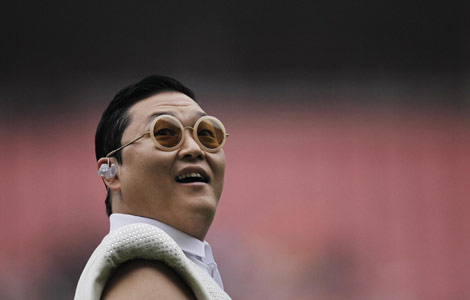Bolster ties based on mutual trust
Updated: 2013-06-26 06:51
By Woo Jin-hoon (China Daily)
|
|||||||||||
At the invitation of President Xi Jinping, the Republic of Korea President Park Geun-hye will visit China from Thursday to Sunday. The visit to China will be Park's second overseas trip since she took office in February; her first was to the United States. This breaks the order established by her predecessors who all visited the US first, followed by Japan, China and Russia.
Park is visiting China ahead of Japan, as it is more of a priority in the ROK's foreign policy for a number of reasons.
First, China is playing an ever more important role in resolving the Democratic People's Republic of Korea' nuclear issue.
Second, economic cooperation between China and the ROK is expanding to deeper and broader levels.
Third, although Japan is also a member of the Six-Party Talks aimed at the denuclearization of the Korean Peninsula, the behavior of its right-wing politicians and their attitude toward history has cast a shadow over Japan-ROK relations.
Fourth, Park personally has amicable feelings toward China.
Her visit to China, her fifth visit in an official capacity, will be further enriched by her personal interest in Chinese culture and her goodwill toward China.
The visit is sure to attract global attention given the tensions resulting from the DPRK's recent nuclear test. Park firmly advocates that denuclearization of the Korean Peninsula is the important premise for peace and stability in Northeast Asia. During her trip, Park will seek to put forward her proposal for a trust-building process on the Korean Peninsula to the Chinese government, and to discuss plans for a China-ROK mutual-help system in resolving the DPRK issue.
China has always adhered to cooperation rather than confrontation, and President Xi Jinping reaffirmed China's stance on denuclearization of the Korean Peninsula during his recent summit meeting with US President Barack Obama.
Since the leaders of China and the US have reached a consensus on the DPRK nuclear issue, Park's visit to China will also have an influence on the US' policies toward the DPRK. Therefore, the forthcoming summit between Park and Xi provides opportunities for building up the framework to solve the DPRK nuclear issue.
Discussions to strengthen bilateral cooperation between China and the ROK are also expected to be high on the summit agenda based on the trust-building process on the Korean Peninsula and the Northeast Asian Peace and Cooperation Initiative. The initiative, mainly led by China, the US, and ROK, is aimed at building a consultation platform that starts with softer, non-political issues, including environmental issues, disaster relief, nuclear safety and counterterrorism, so as to enhance trust among partners and promote a peaceful Northeast Asia.
In fact, a meeting focusing on building strategic dialogues among China, the US and the ROK will be held in the ROK during the course of Park's visit to China.
Since the establishment of diplomatic relations, China and the ROK have witnessed flourishing communications between the two peoples. Park's visit provides the opportunity for China and the ROK to steep up their efforts to resolve the DPRK crisis and further improve bilateral ties.
Experts from both China and the ROK say that the recent signals from DPRK about its willingness to go back to the negotiating table can be attributed not only to Seoul's firm stance toward resolving tension through dialogue, but also to the tremendous efforts made by the Chinese government.
During the upcoming summit, a consensus has to be reached on measures that will encourage the DPRK to make tangible efforts to put an end to its nuclear weapons program and carry out reforms.
Park cited Confucius' adage that "trust is the coin of the realm" in her emphasis on diplomacy that is based on mutual trust. Like interpersonal relations, international relations also need to be based on trust. China and the ROK will bolster their bilateral ties based on their long established mutual trust.
The author is a guest professor at the School of Finance, Renmin University of China.
(China Daily 06/26/2013 page9)
Today's Top News
Obama targets global warning, emissions
Fed's QE3 decision causes stir
FM: China rejects US' claim on Snowden
Public interests Party's top priority
Cooling off, the traditional way
Patchwork solutions for winter ills in summer
Warning on college majors
Yangtze Delta region braces heavy rains
Hot Topics
Lunar probe , China growth forecasts, Emission rules get tougher, China seen through 'colored lens', International board,
Editor's Picks

|

|

|

|

|

|





